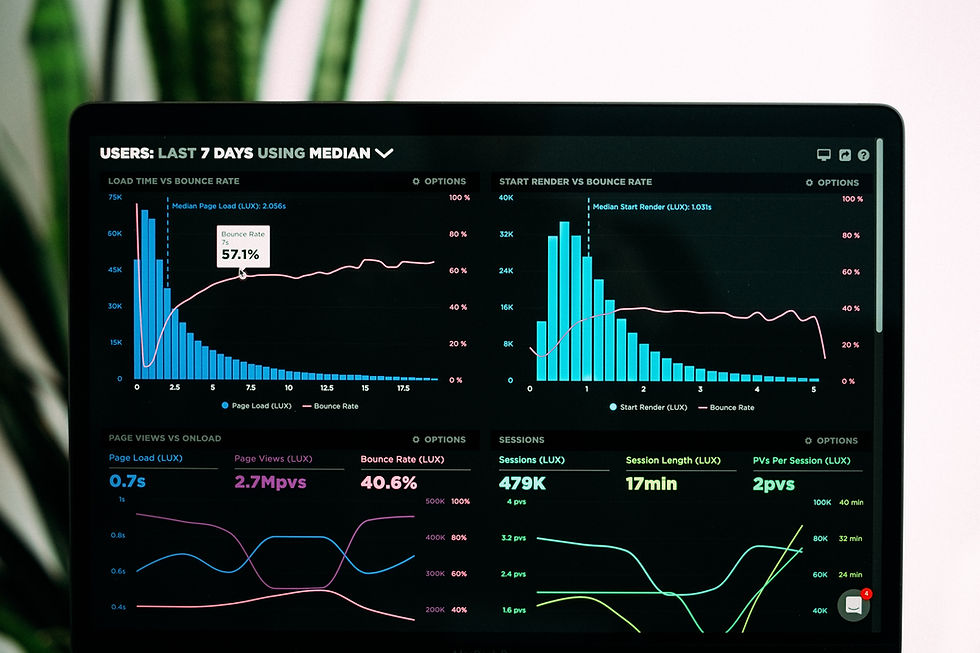Why UX Design for Business Success Is Your Competitive Edge in 2025
- Desion Sync
- May 15, 2025
- 4 min read
In today’s digital-first world, UX design for business success is no longer a luxury—it’s a strategic imperative. Research from IBM reveals that every $1 invested in UX delivers a remarkable return of up to $100. For businesses navigating tight markets and high customer expectations, this level of return is transformational.

We've seen businesses lose up to $2.6 billion annually due to slow-loading websites. Add to that the 35% of potential sales lost because of poor user experiences, and the urgency becomes clear. Companies like Airbnb proved this with a 30% increase in conversions after redesigning their booking flow. Simply put, enhancing UX is among the most effective business growth strategies available.
In this article, you’ll learn how UX design directly impacts business outcomes, the most common mistakes that hurt growth, and how to identify and fix usability challenges with expert-backed methods.
How UX Design for Business Success Drives Real Results
A thoughtfully executed user experience isn't just good design—it’s good business. Studies show companies that prioritize UX grow twice as fast as those that don’t.
Here’s why:
Loyalty starts with ease: 74% of users will return to a site with strong mobile UX. Great experiences convert one-time users into long-term customers.
Conversion gains are measurable: An improved interface can boost conversion rates by up to 200%, and comprehensive UX enhancements can yield 400% growth.
Efficient support: Better UX reduces support costs by up to 33%, according to Gartner. That’s because intuitive interfaces minimize confusion and errors.
Let’s not overlook cart abandonment: One of the most damaging issues in e-commerce is friction at checkout. From hidden fees to complex forms, poor UX drives users away. But with simple fixes—like transparency, autofill, and progress indicators—you can recover abandoned sales quickly.
And don’t forget mobile: 58% of smartphone users view companies more favorably when sites remember preferences. Personalization, driven by thoughtful UX, leads to better retention and stronger brand perception.
Common UX Mistakes That Hurt Business Growth
Every poor UX decision leaves money on the table. Here are key issues to watch:
Slow Load Times: Nearly 73% of users will abandon a site that loads too slowly. Just a 2-second delay can increase bounce rates by 32%. Mobile users are even less forgiving—53% leave if it takes more than 3 seconds.
Unclear Navigation: Vague menu labels like “Solutions” or “Products” confuse users. When people can’t find what they need, they leave. Studies show that only one in several navigation labels earns more than 50% user consensus. If your site feels like a guessing game, it’s costing you.
Poor Mobile Experience: Despite mobile traffic dominating the web, many sites remain clunky and hard to use on small screens. Nearly half of users equate poor mobile design with a business that doesn’t care. And over half won’t recommend such a business.
Visual Clutter: Busy interfaces with too many pop-ups or unorganized content lead to higher error rates and user fatigue. Clean, accessible designs reduce mental load and increase satisfaction.
How to Identify and Fix UX Issues Like an Expert
UX problems aren’t always visible at first glance. Expert teams use a structured approach to uncover them:
🔍 UX Audits
A UX audit is your digital health check. It assesses how well your website or app serves users—and where it’s falling short.
🔥 Heatmaps & Analytics
Heatmaps show where users click and scroll, helping you understand attention flow. Analytics tools highlight drop-off points and conversion gaps.
👥 Usability Testing
Watching real users perform key tasks on your product reveals hidden friction. This type of testing strips away assumptions and delivers actionable insights.
🧠 Heuristic Evaluations
Experts simulate user journeys, documenting obstacles and rating usability against known best practices. These evaluations are efficient, effective, and scalable.
🎥 Session Replays
By viewing real-time user sessions, you can spot confusing moments, bugs, or unexpected behavior that traditional metrics might miss.
Once issues are identified, prioritize them by user impact and business value. Often, simple changes—like better button labels or trust badges at checkout—can unlock dramatic gains.
UX Design for Business Success Is an Ongoing Commitment
UX is not a one-and-done project. Leading companies regularly revisit their user journeys to ensure they’re aligned with customer needs and behavior.
Here’s what you can do right now:
Schedule a quarterly UX audit
Monitor behavioral trends through analytics
Involve real users in testing new features
Document UX improvements alongside product development
When UX becomes a core business strategy, customer satisfaction rises, costs fall, and growth accelerates.
Conclusion: UX Design Is Your Business Growth Engine
User experience is the silent engine powering today’s most successful brands. In 2025 and beyond, UX design for business success will define the winners in nearly every industry.
The data is clear:
UX boosts ROI, reduces costs, and increases retention
Small changes lead to large improvements in conversions
Businesses that ignore UX lose competitive ground


